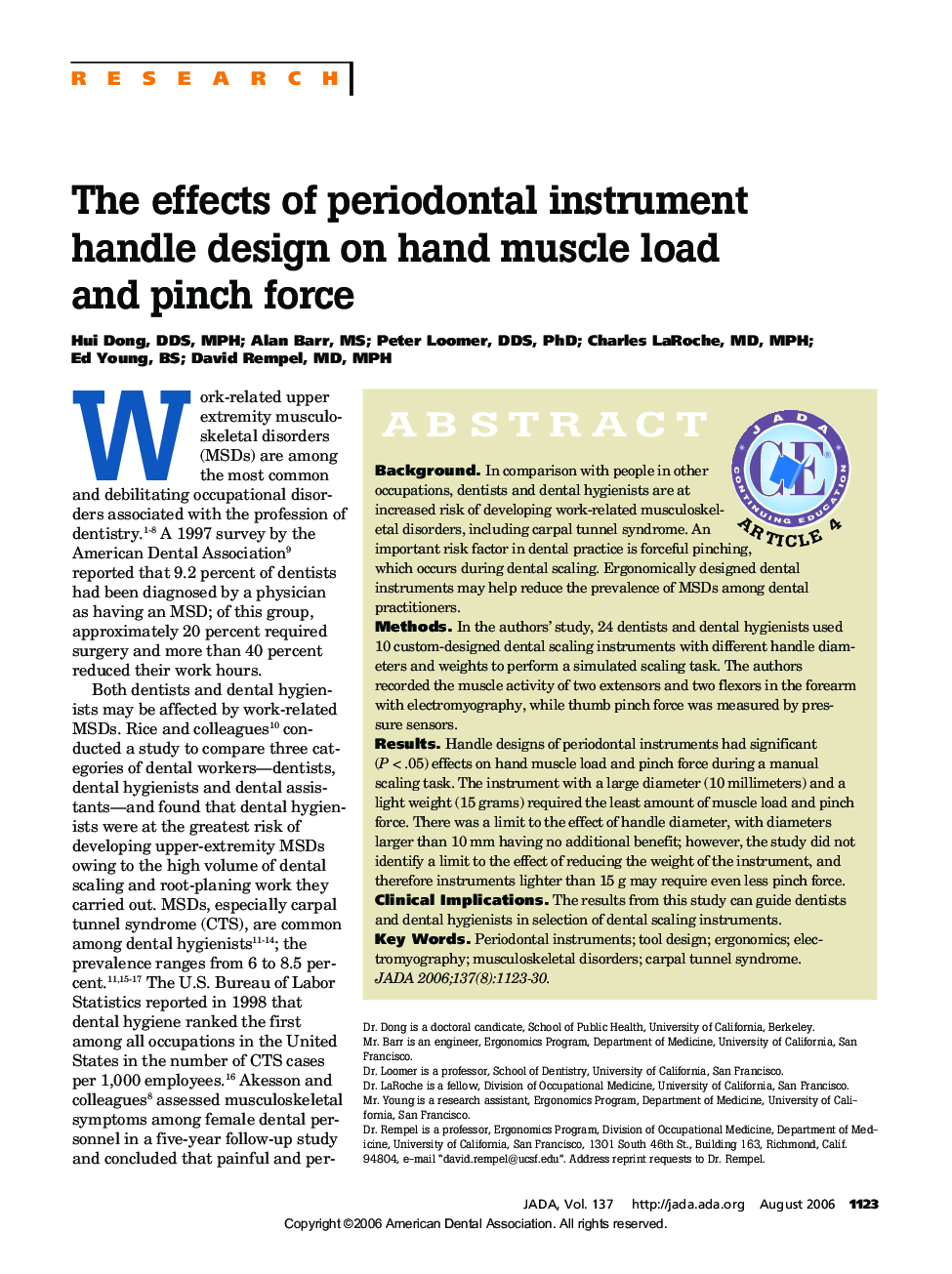| Article ID | Journal | Published Year | Pages | File Type |
|---|---|---|---|---|
| 3140123 | The Journal of the American Dental Association | 2006 | 8 Pages |
ABSTRACT BackgroundIn comparison with people in other occupations, dentists and dental hygienists are at increased risk of developing work-related musculoskeletal disorders, including carpal tunnel syndrome. An important risk factor in dental practice is forceful pinching, which occurs during dental scaling. Ergonomically designed dental instruments may help reduce the prevalence of MSDs among dental practitioners.MethodsIn the authors' study, 24 dentists and dental hygienists used 10 custom-designed dental scaling instruments with different handle diameters and weights to perform a simulated scaling task. The authors recorded the muscle activity of two extensors and two flexors in the forearm with electromyography, while thumb pinch force was measured by pressure sensors.ResultsHandle designs of periodontal instruments had significant (P < .05) effects on hand muscle load and pinch force during a manual scaling task. The instrument with a large diameter (10 millimeters) and a light weight (15 grams) required the least amount of muscle load and pinch force. There was a limit to the effect of handle diameter, with diameters larger than 10 mm having no additional benefit; however, the study did not identify a limit to the effect of reducing the weight of the instrument, and therefore instruments lighter than 15 g may require even less pinch force.Clinical ImplicationsThe results from this study can guide dentists and dental hygienists in selection of dental scaling instruments.
